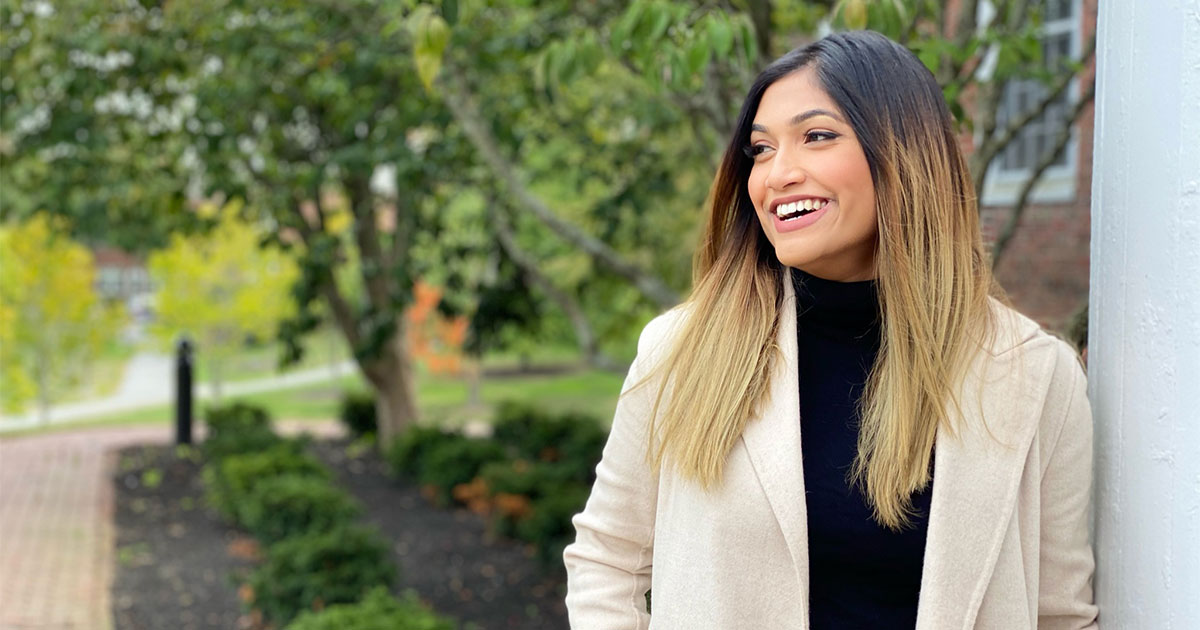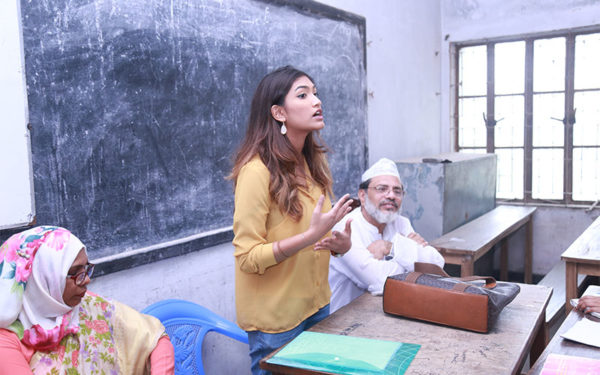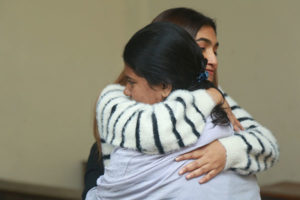A Chance to Change a Life

What Aria Mustary ’21 is trying to do with her social venture, Mai Soli Foundation, is not easy.
For starters, the efforts of her organization are focused on a country, Bangladesh, that’s on the other side of the world from Babson Park.
More than that, Mai Soli’s mission involves addressing a harmful societal problem, child marriage and the cycle of poverty it perpetrates, that’s complex and deeply ingrained. To break that cycle means tackling the big issues, namely gender inequality and lack of opportunity, that are its root causes. “It’s not something any organization has ever done before,” says Mustary, Mai Soli’s president and founder.

To empower girls and offer them an alternative beyond marrying far too soon, Mai Soli seeks to teach them about entrepreneurship, leadership, and financial literacy. Mustary finds much fulfillment in the work. “It gives me hope to see them be a part of something that will truly change their lives,” says Mustary.
The foundation also has forced her to talk about her childhood, a story that can be difficult to tell but proved to be an inspiration for starting Mai Soli in the first place.
A Story to Tell
Mustary was raised in Brooklyn, New York, in a small, one-bedroom apartment not far from Coney Island. She was the child of immigrants in a community of immigrants.
Her mother was born in Bangladesh, and, at the age 15, was forced into exactly what Mai Soli seeks to stop: child marriage. Pulled out of school, she was brought to the U.S. “It was very difficult,” says Mustary.
Running a nonprofit is hard work. If she is feeling tired, Aria Mustary ’21 looks at videos and pictures of the girls she is helping. “Looking at their eyes and seeing the hope they have,” she says, “it changes your life.”
The couple eventually divorced in 2013. After the divorce, Mustary’s mom worked hard to make ends meet and reinvented a struggling fabric shop into a vibrant business. Often left alone as her mom worked, Mustary made sure to watch after her little sister. “I learned to be independent,” she says.
Out of those experiences came a desire to help and empower others. She launched Mai Soli in 2018, and the foundation has helped her become more comfortable talking about her childhood. “Before the foundation, no one would have known,” she says. “I used to be very private. I used to keep it all inside.”
Giving Them a Choice
What happened to Mustary’s mother is, unfortunately, not uncommon. According to UNICEF, one in five girls around the world are married before the age of 18. They are more likely to drop out of school, experience domestic violence, and become pregnant as teenagers.
To conduct research and set up Mai Soli, Mustary has taken three trips to Bangladesh. In talking to parents there, she found that they usually don’t want to have their daughter marry so early, but they feel they don’t have a choice. “She doesn’t have any job opportunities, so they have to get her married to secure her future,” says Mustary.

To give girls more opportunity, Mai Soli set up a transformative educational and mentorship program. The foundation recruited 20 female college students in the country to act as teachers and mentors, and they travel to the school of the 200 or so girls who are participating in the program. The girls are taught about entrepreneurship and idea generation, about leadership and confidence, and about saving, budgeting, and the basics of accounting and micro-financing.
The foundation hired a regional director to run operations on the ground in Bangladesh, and the girls’ parents must attend an orientation to make sure they support the program. The end goal is to give girls a different path beyond early marriage. Perhaps they will start a venture, or go into the family business, or attend college. “The biggest thing we’re giving them is a choice,” says Mustary.
Mustary admits that running a nonprofit while going to school full time is exhausting, though she does receive a lot of support. Two other Babson folks (Glen Ged ’21, the VP of development, and Aaron Wendell ’20, the VP of operations) work with her, and she is a Posse Scholar who has participated in the WIN Growth Lab, Summer Catalyst, and Taylor Scholar program. “The support Babson has given me is invaluable,” says Mustary, who eventually would like to expand Mai Soli to other countries.
If she is feeling tired, Mustary looks at videos and pictures of the girls in the program. “Looking at their eyes and seeing the hope they have,” she says, “it changes your life.”
Posted in Community, Entrepreneurial Leadership




